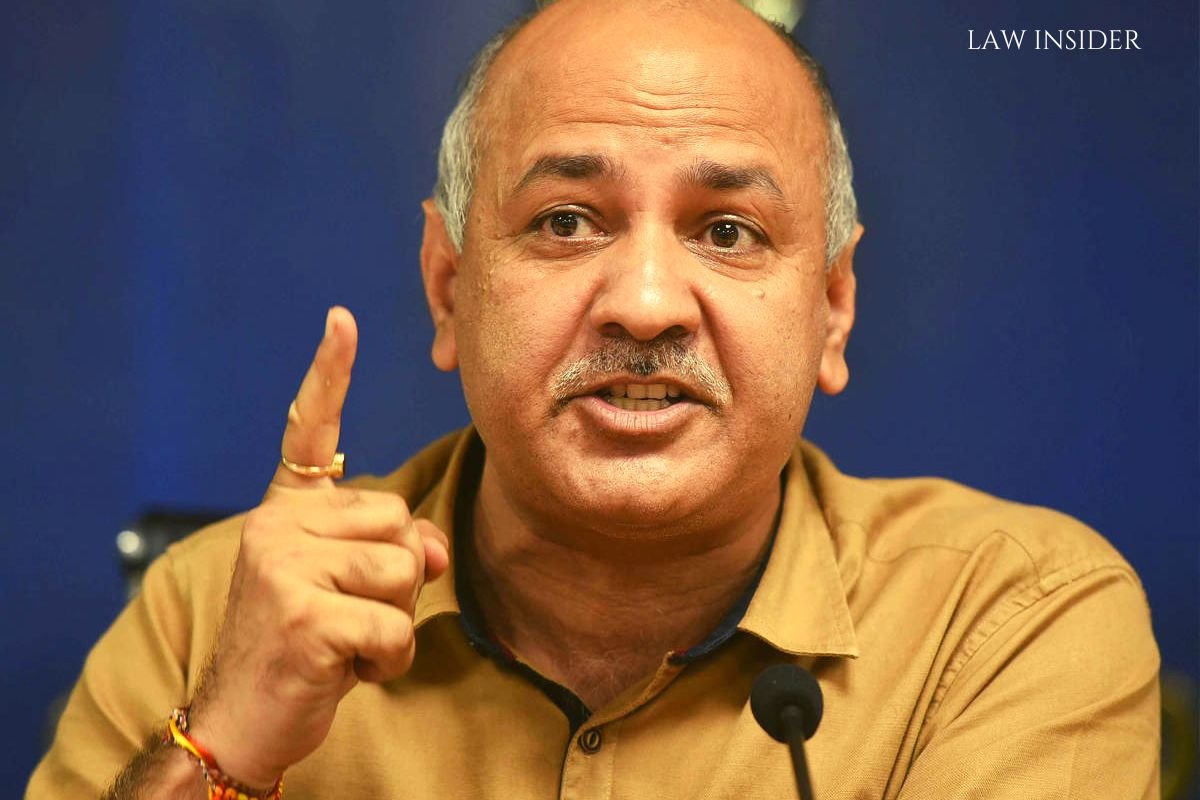Savvy Thakur
Published on: November 10, 2022 at 19:31 IST
Delhi Deputy Chief Minister Manish Sisodia told the Supreme Court that bureaucrats in Delhi are not cooperating with the Aam Aadmi Party government (AAP government), which is preventing the elected government’s policies and projects from being carried out in the national capital.
Sisodia stated in an affidavit submitted to the Supreme Court that bureaucrats have stopped attending meetings called by AAP ministers and have stopped responding to ministers’ phone calls.
He also stated that the appointment of the current Lieutenant Governor of Delhi, Vinai Kumar Saxena, has exacerbated these issues.
The affidavit stated, “Officials have stopped taking calls from ministers… Officials are disobeying orders/directions of ministers, including written orders/directions.”
This is a direct result of a notification that the Central government issued on May 21, 2021, stating that civil servants are no longer accountable to the elected Delhi government but to the BJP-led Central government.
“The Central government/Lotto Governor is in charge of assigning positions, making transfers within the Government of the NCT of Delhi, and disciplining civil servants.”
“It is not surprising that civil servants serving in the Government of NCT of Delhi have become indifferent to the elected government,” the affidavit stated.
“This regime was introduced by the impugned notification.”
It also said that civil servants’ cooperation with the elected government was punished, and that reluctance toward the elected government was encouraged.
The affidavit was submitted as part of the ongoing dispute between the Delhi and Central governments in the Supreme Court regarding which government has administrative control over officer transfers and postings in Delhi.
After a three-judge bench decided in May to refer the case to a larger bench at the Central government’s request, the case will now be heard by a Constitution bench.
In his affidavit, the Deputy Chief Minister asserted that the Government of the NCT of Delhi has a number of open positions due to the absence of accountability from those in charge of making appointments to the public.
The affidavit stated, “Frequent transfers of heads of various departments have left large gaps in the government’s policy implementation.”
It was alleged that senior civil servants and department heads routinely skipped meetings with elected government ministers despite receiving advance notice.
In most instances, neither an explanation for absence nor a request for rescheduling is communicated to the minister’s office, and instead, junior officials are sent to attend the meetings in violation of protocol.
According to the affidavit, for instance, twenty meetings were scheduled with the Minister (environment, forests, and wildlife) between May 5, 2022, and only one of them was attended by the additional chief secretary/principal secretary of the environment and forest department.
Between June 15 and September 8, the Minister (Development) convened five meetings, only one of which the Commissioner (Development) attended.
It was likewise presented that government workers regularly defer handling of the records relating to significant ventures sort to be embraced by the chosen government, subsequently, influencing execution of individuals cordial plans and activities on the ground.
It was asserted that citizens suffer as a result.
The Deputy Chief Minister’s affidavit made it clear that the delay caused by officers of the Central government prevented the Delhi government’s flagship event, Dilli ki Diwali 2022, from taking place this year.
Article 239AA of the Constitution, which contains special provisions regarding the National Capital Territory, had been interpreted by a Constitution Bench of the Supreme Court in 2018.
In the case, there was discussion about the unique status of the NCT, the powers of the Delhi Legislative Assembly, and how they worked together.
In that judgment, the Court said that the LG must cooperate with the NCT government and act independently with the help and advice of the Council of Ministers.
After that, the appeals related to specific aspects, such as services, were brought before a regular Bench for a decision based on the Constitution Bench’s decision.
On April 14, 2019, the regular bench decided on a number of individual aspects of the dispute between the Delhi government and the LG.
However, the two judges on the Bench, Justices AK Sikri and Ashok Bhushan, disagreed about what constitutes “services” under Schedule VII, List II, Entry 41 of the Indian Constitution.
The question that the Court considered was whether the notification of the Government of India dated May 21, 2015’s exclusion of “services” related to Entry 41 of the Seventh Schedule from the legislative and executive domains of the NCT of Delhi was unconstitutional and illegal.
This aspect was referred to a larger bench and brought before a three-judge bench due to disagreements among the judges on the bench.
Following the request of the Centre, the three-judge bench referred the matter to the Constitution Bench.
The primary reason for the request to refer it to a five-judge bench was that the majority of the Constitution Bench’s decision did not take into account the meaning and purpose of the phrase “insofar as any such matter is applicable to Union Territories” in Article 239AA(3) of the Constitution, which is the most important and pivotal part of the provision.

